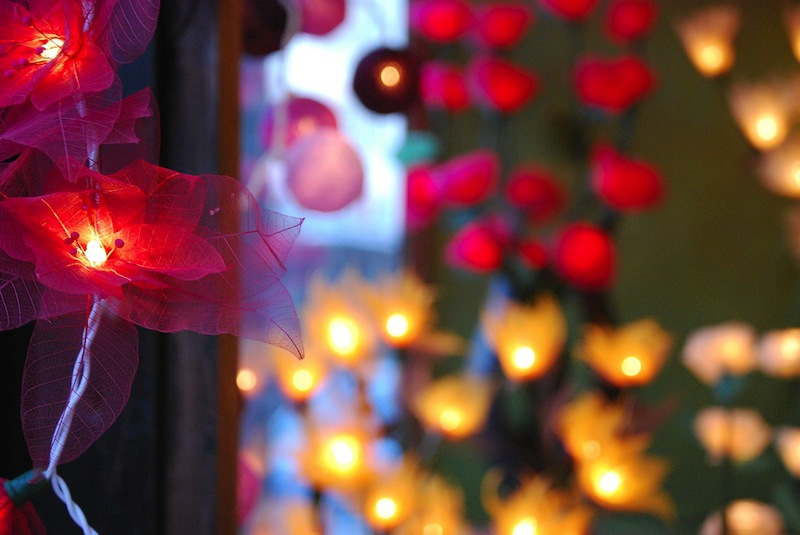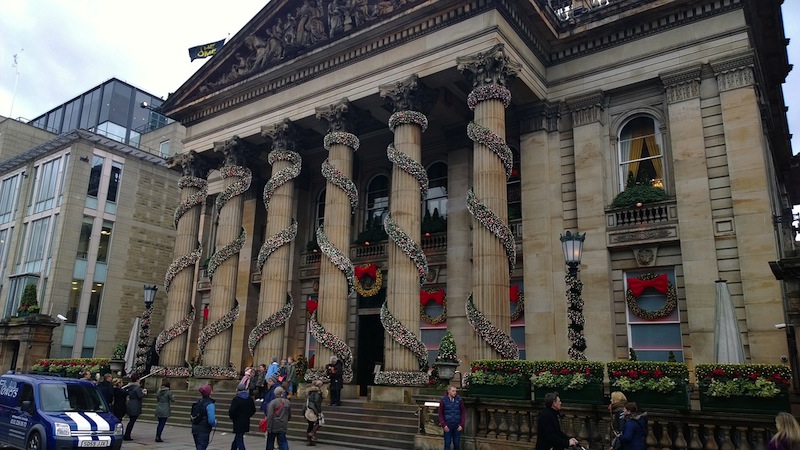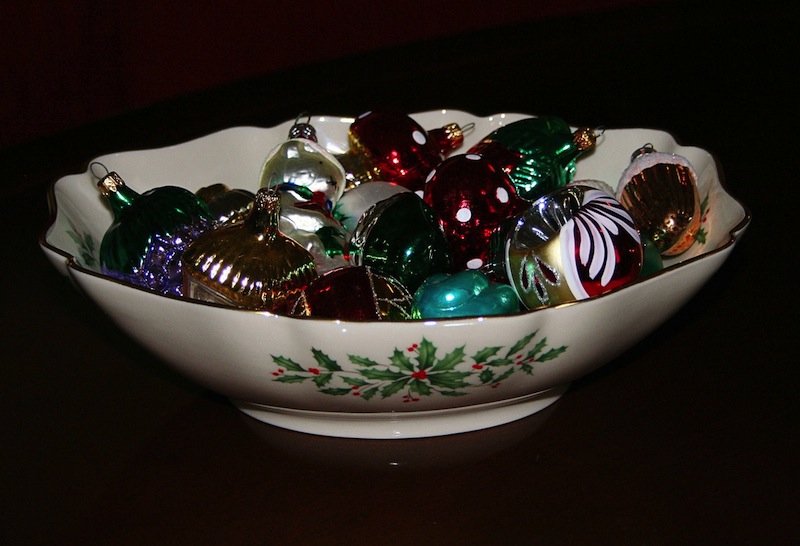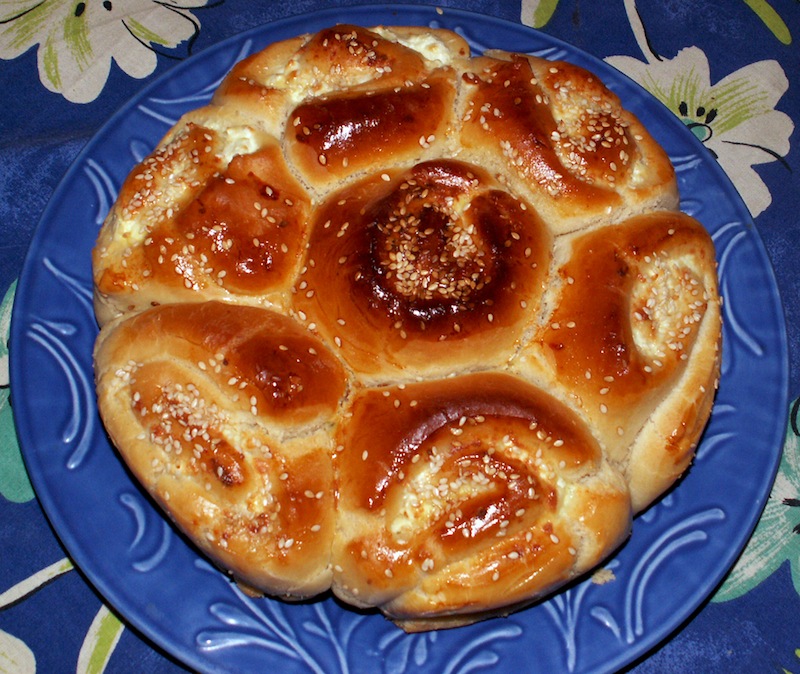
Brigitte, a French woman, is married to Nikos, a Greek man. Together they are eager to teach and perpetuate Greek traditions surrounding Christmas celebrations. They walk us through Hellenic Christmas traditions.
Orthodoxy is the main religion in Greece and Greek people are very attached to their religious beliefs. To celebrate the Holy infant Jesus’ birth, Christmas Day therefore takes place on 25 December. Another important celebration (tone fotone) follows a few days later on 6 January, which corresponds to Jesus’ Christening [Twelfth Night in the European and American countries]. Starting on 25 December, Chrismas holidays will extend till 8 January, even a few days after.
On Christmas Eve (24 December), children wake up early in the morning, as they will go carolling, singing calandas(short Christmas poems and carols that recall the history of Christmas and New Year’s Day). While singing, they wave their trigona (a small steel triangle gently drummed with a steel trianglestick). Children are warmly welcomed by their various hosts who do appreciate the perpetuation of this everlasting Greek tradition. As reward for singing, people offer them some coins, fruits and/or kourabiédes (round, flat cakes made of puff pastry covered with confectioner’s sugar), a goody specially baked for Christmas. As well, on Christmas Eve the evening is quiet; houses and streets are dimly lit. Towns and small villages quietly fall asleep at night.
According to the tradition, for Christmas in Greece people get up very early (before dawn) on 25 December to go to the church and celebrate Jesus’ birth that happened during the night. The whole family then gathers round the Christmas meal which includes traditional Greek specialties, such as galopoula (a turkey stuffed with chestnuts, currants, and nuts or almonds) acccompanied by baked potatoes. Another specialty is gourounopoulo psito (a young roasted piglet brushed with olive oil, simmered in the oven for almost 3 hours, and basted at regular intervals with its own juice, hot water and lemon juice). Melomacarona (a cake essentially made of nuts and honey syrup) is a traditional pastry ending the Christmas meal.
Never will you see a Christmas tree in Greece, as this European tradition comes from the Scandinavian countries. However, because “nature works wonder”, sea is omnipresent in Greek people’s life, which will allow you to admire amazing boat or sailing dinghy models brightly illuminated with small glittering lights, as a remembrance of the sea.
No gift on this very day: the coming of Santa Claus and Jesus’ birth are not to be confused in Greece.
Then comes New Year’s Day (1 January), which also corresponds to St Basil’s day (agios Vassilis). St Basil is equivalent to Santa Claus. He brings gifts along, mainly to the kids. On this very day, vassilopita (a sort of mix between our traditional Yule log and the cake eaten in France on Twelfth Night) puts an end to the family meal. In this variety of New Year’s bread (made of flour, sugar, melted butter, brewers’ yeast, milk, eggs and lemon peel) is hidden a nomisma (a charm, a coin as a matter of fact; in the very beginning of the tradition, the coin was a lira made of gold or silver). Prosperity for the remaining of the year is the gift that nomisma brings to the one who finds it in his/her piece of cake.
Christmas in Greece ends with Jesus’ Christening on 6 January, namely ta fota, one of the most wonderful celebration of the orthodox religion that symbolizes Light springing up. During the liturgy, the priest purifies the water by driving out the make-believe fairies calling down the curse of God upon people. He blesses the water, particularly the sea water or the fresh water from a close river. A crucifix is thrown into the water and young, brave men try to immerse themselves in the holy, fresh water to catch it. The bravest of them – the one who succeeds in grabing it – is then blessed by the priest and the whole congregation.




